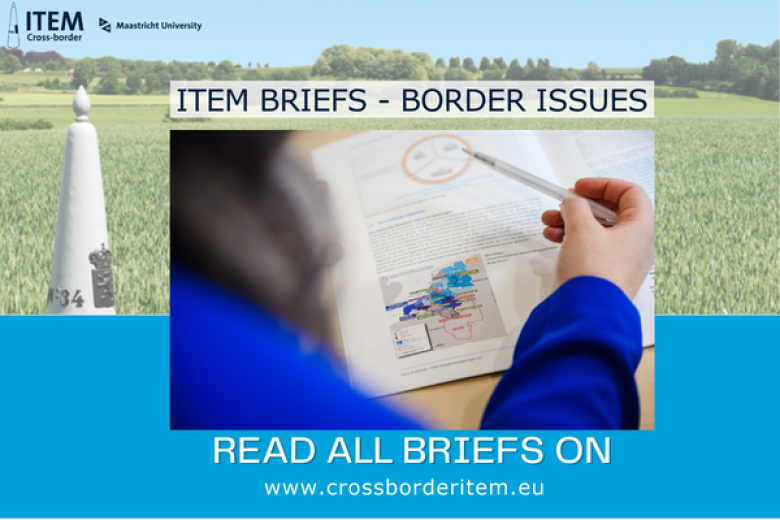Providing information for a mobile citizen – the Single Digital Gateway offers a solution?
Choosing to work or live in another country often does not happen overnight. Obtaining information beforehand is indispensable. To this end, one can rely on numerous websites that provide further insight into conceivable administrative, fiscal and social security law aspects you will be confronted with as a mobile worker or ‘cross-border’ pensioner. These are often national websites or websites that highlight the situation of two countries. Tools such as the Fair Mobility Tool and the tool included on grensinfo.nl also provide at-a-glance insight into the points of interest when working and/or living in another country for various conceivable topics.hoosing to work or live in another country often does not happen overnight. Obtaining information beforehand is indispensable. To this end, one can rely on numerous websites that provide further insight into conceivable administrative, fiscal and social security law aspects you will be confronted with as a mobile worker or ‘cross-border’ pensioner. These are often national websites or websites that highlight the situation of two countries. Tools such as the Fair Mobility Tool and the tool included on grensinfo.nl also provide at-a-glance insight into the points of interest when working and/or living in another country for various conceivable topics.
The need – in view of traffic freedoms – for adequate digital information provision for mobile citizens (and companies) has also been recognised at the European level. In this context, particular reference can be made to the so-called Single Digital Gateway regulation. An actuality (about which more later), which has prompted action particularly among government organisations. As its name suggests, this regulation aims to provide mobile EU citizens with a single online portal containing information about other countries. This online portal is called Your Europe. This portal can serve as a starting point to obtain more information on topics that come into play when living and/or working in an (other) EU Member State. In terms of topics, one can think of ‘travel’, ‘pension’ but also, for example, ‘healthcare’. Via a handy step-by-step plan, this information can then be requested per topic and per EU Member State. Incidentally, the information is not included on Your Europe, but from this portal is referred to the government websites of the relevant EU Member State. The relevant information should also be available there in English.
Another aspect of the Single Digital Gateway regulation worth mentioning is the so-called ‘once only principle’. The thrust of this principle is that once you as a citizen have provided data to a government organisation, this organisation can share the data with another government organisation. In concrete terms, this would mean that, as a citizen, you only have to provide data once. Also in a ‘mobile’ situation and if another government organisation from another EU member state is involved. How this will work out in concrete terms is currently still ‘work in progress’ (see, for example, this EU website on the subject, which of course also takes privacy aspects into account). Ostensibly, such a behind-the-scenes exchange could be meaningful for a mobile citizen from an administrative point of view. The choice of the word ‘significant’ in the preceding sentence is not unconscious, as several aspects have yet to crystallise. Although, according to this post on digitaleoverheid.nl, the latest deadline for implementation of the Single Digital Gateway regulation was 12 December 2023, however, the aforementioned news item mentions that several steps still need to be taken by Dutch government organisations. To keep abreast of developments on the Dutch side in this regard, please refer to digitaloverheid.nl.
-
Cross-border pension in the EU: the procession of Echternach
Our pensionland is in a state of flux; especially when it comes to the regulation of cross-border pensions. On 17 January, the Lower House debated the Future Pensions Act (WTP). It is surprising that in the more than 100 hours of parliamentary debates and many hundreds of pages of parliamentary...

-
Climate summit COP28 – ‘An agreement is only as good as its implementation’ Global warming and its border regions
From 30 November to 12 December 2023, the COP28 climate summit took place in Dubai. It is special because all parties agreed to phase out fossil fuel use, triple global renewable energy generation capacity by 2030 and double energy efficiency. This annual UN climate conference is the world’s largest...

-
“Internationalization in Balance” bill: a cross-border impact assessment of higher education
At the end of 2022, the House of Representatives instructed the Dutch government to take measures against the influx of international students in higher education. In response, the Ministry of Education requested Dutch higher education to stop actively recruiting international students and to limit...
